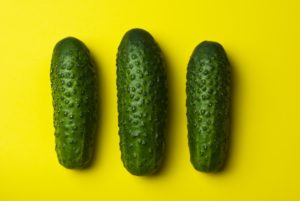 In this short series of posts, trainer and former sufferer of ME/CFS and fibromyalgia Simon Pimenta explores simple strategies for people with ME/CFS.
In this short series of posts, trainer and former sufferer of ME/CFS and fibromyalgia Simon Pimenta explores simple strategies for people with ME/CFS.
I will look at:
1. Diet
2. Supplements
3. Rest
4. Exercise
5. Stress
In the first article on diet I will focus on the Stone Age Diet.
In the second article on diet I will explore Glycemic Index and how GI relates to how foods affect your blood sugar
In the third article on diet I will look at the anti-candida diet.
These tips come with the following caveats:
i. Keep things as simple as possible and within your budget.
ii. I am not recommending any particular approach.
I am simply sharing information based on recommendations on Doctors/ME experts.
iii. ALWAYS use your own judgement!
You have to decide what approach to take.
You may decide to start small, or experiment for a period of time.
You may not notice dramatic changes, but consider that eating foods that don’t add any additional burden to a poorly body will do no harm and it may do some good.
iv. You are going to come across conflicting information.
The advise given by the Association of UK Dieticians is at odds with the advice given by some Doctors who have worked with people with ME/CFS.
BDA https://www.bda.uk.com/foodfacts/cfs-meanddiet.pdf
For example, the BDA advocates eating bread, whilst Dr Sarah Myhill, a medical doctor who has worked for many years with people with ME/CFS, advocates avoiding wheat.
Diet Part 1: The Stone Age Diet
We Are What We Eat
Dr Sarah Myhill advocates the Stone Age diet.
What Is The Stone Age Diet?
This diet is based on the idea that humans have evolved over millions of years eating certain foods:
Meat
Fish
Plants
Seeds
In the last 10,000 years or so, farming methods allowed the introduction of grains, legumes (beans, lentils) and dairy products.
It is suggested that these foods are responsible for a range of health problems, as humans do not adapt in such a relatively short period of time to eating different foods
The Stone Age diet is a diet free from wheat, dairy products, sugar, potatoes and processed foods.
Studies on tribes who follow this diet do not experience from diseases such as diabetes, obesity, heart disease or cancer.
Her take on the Stone Age diet may be at variance with other Stone Age Diet advocates.
I find that I lose weight on this sort of diet.
That’s fine if you want to lose weight, but not so good if you don’t want/need to.
Consequently, I don’t follow it strictly at the moment and am experimenting with variants of the Stone Age diet.
For example, some people advocate consuming some carbs like quinoa, brown rice or sweet potatoes, especially at the evening meal, as it may aid sleep.
However when I had ME/CFS and was following an anti- candida diet, I did follow some of the Stone Age principles strictly (more on the anti- candida diet in another post).
The main principles of the Stone Age Diet are as follows:
- It avoids the common allergens: wheat, dairy and yeast for example.
- It is as free from chemicals as far as is possible.
- You eat as naturally as possible- reducing preservatives and additives.
- You eat foods that encourage digestion of food, not fermentation, which can lead to a host of problems.
Martine McCutcheon said that her leg pain disappeared when she cut out diet sodas…
The chart below summarises foods to eat, foods to eat with caution- depending on whether tolerated, and foods to avoid.
Food For Thought
1. Consider what changes you could make to your diet to reduce processed sugar, chemicals, preservatives and additives.
2. Would cutting out wheat and/or dairy be beneficial to your wellbeing?
3. If you are intrigued to learn more about the Stone Age diet, check out Dr Sarah Myhill and other sites devoted to the diet for more information.
Coming Up…
In the next post, I will explore:
1. Glycemic Index (GI) foods. You can read it here
2. How GI relates to how foods affect your blood sugar
3. Which foods have release their sugars into your blood slowly, helping to maintain steady energy
Comment
Do you think that there is scope to make dietary changes?
Do leave a comment on how useful you found this article.
I am interested in your thoughts.
If you found the article useful, feel free to share.
Contact Me
Feel free to contact me here for a free consultation* to find out more about how I work, or if you have any questions.
I do 3 free coaching sessions each week.
I promise that I won’t sell anything.
During the session, we will work together to:
- Clarify your current situation
- Identify a number of clear, reasonable goals
- Identify what is stopping you from achieving them
- Identify practical steps to help you achieve these goals.
*One session per person.
Follow My Blog
Subscribe to my feed (box in the top left corner) to receive future blog articles.
______________________________________
 SIMON PIMENTA is a hypnotherapist, coach and trainer working with people to boost resilience and performance, and minimise stress.
SIMON PIMENTA is a hypnotherapist, coach and trainer working with people to boost resilience and performance, and minimise stress.
After working in a demanding job as the Director of a Housing Trust, he went off sick and remained unable to work for the next 8 years.
He discovered a pioneering approach to resolving health issues and got back his health, and now trains others using these same techniques.
